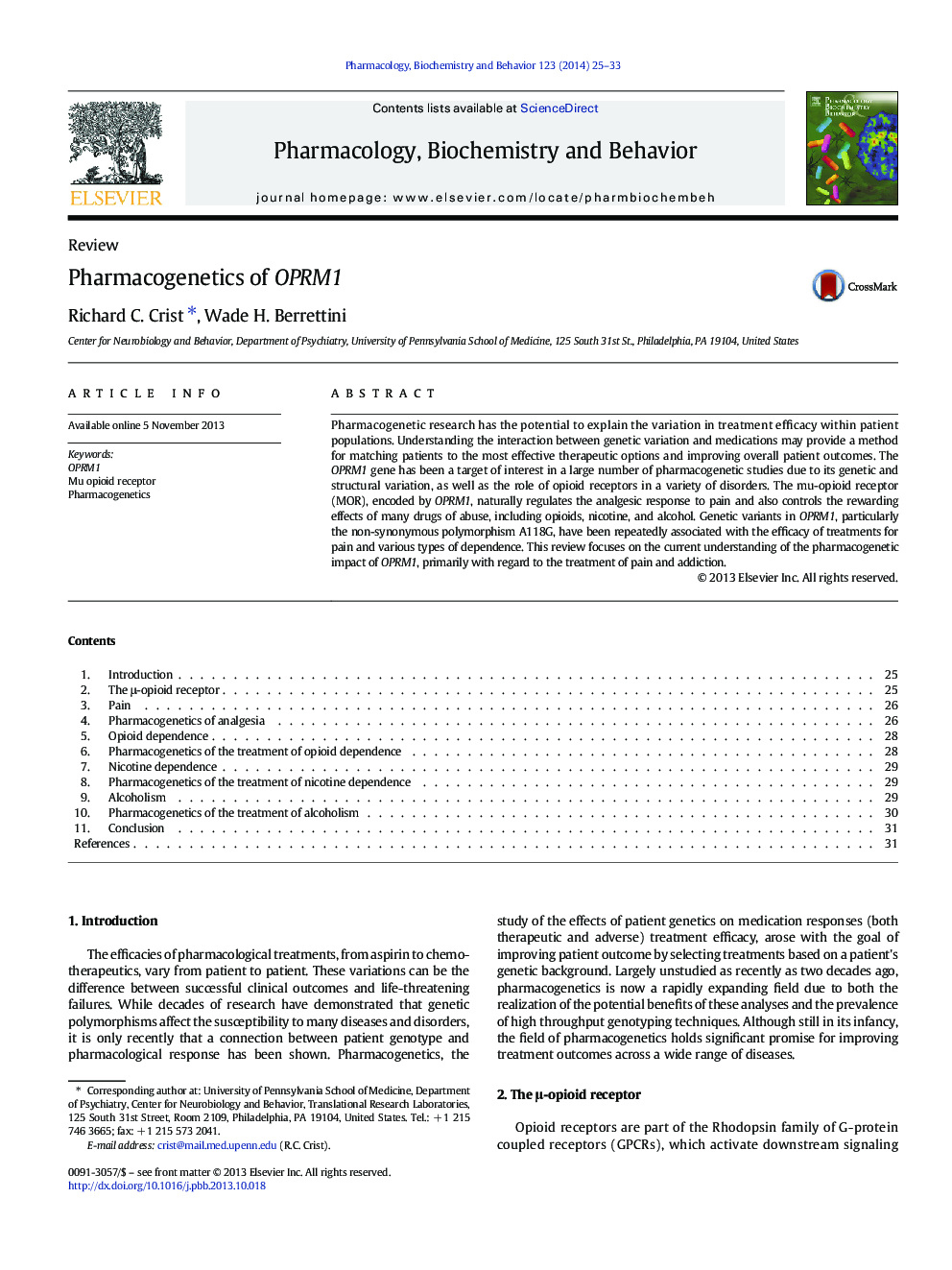| Article ID | Journal | Published Year | Pages | File Type |
|---|---|---|---|---|
| 2012957 | Pharmacology Biochemistry and Behavior | 2014 | 9 Pages |
•Pharmacogenetic studies of OPRM1 have focused on A118G, a non-synonymous variant.•A118G and other polymorphisms are associated with the efficacy of opioid analgesics.•A118G is also associated with treatment outcome in naltrexone patients.•Future pharmacogenetic studies must expand beyond the current focus on A118G.
Pharmacogenetic research has the potential to explain the variation in treatment efficacy within patient populations. Understanding the interaction between genetic variation and medications may provide a method for matching patients to the most effective therapeutic options and improving overall patient outcomes. The OPRM1 gene has been a target of interest in a large number of pharmacogenetic studies due to its genetic and structural variation, as well as the role of opioid receptors in a variety of disorders. The mu-opioid receptor (MOR), encoded by OPRM1, naturally regulates the analgesic response to pain and also controls the rewarding effects of many drugs of abuse, including opioids, nicotine, and alcohol. Genetic variants in OPRM1, particularly the non-synonymous polymorphism A118G, have been repeatedly associated with the efficacy of treatments for pain and various types of dependence. This review focuses on the current understanding of the pharmacogenetic impact of OPRM1, primarily with regard to the treatment of pain and addiction.
